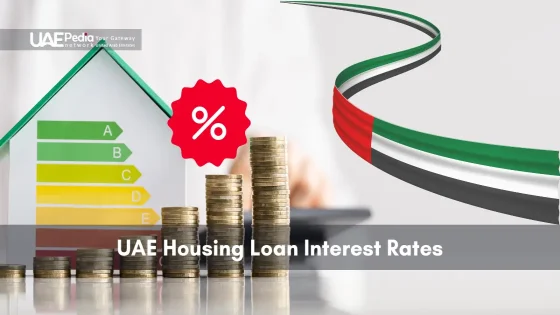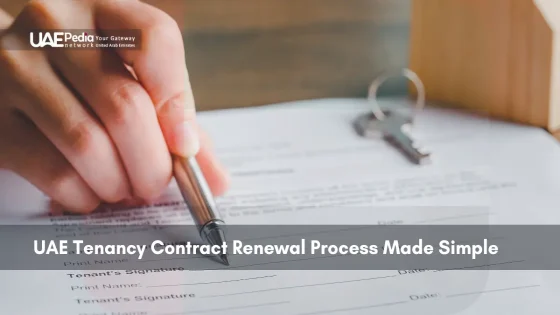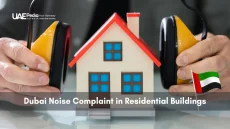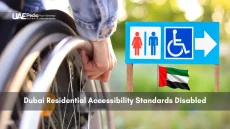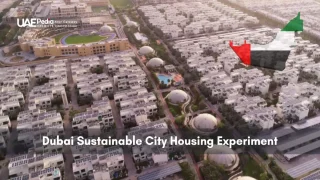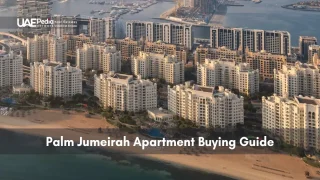Did you know that securing a competitive mortgage rate in the Emirates can save you over AED 50,000 in the first five years alone? Whether you’re eyeing a sleek Dubai high-rise or a family villa in Abu Dhabi, understanding how financing works here is your first step toward homeownership.
This guide walks you through everything from fee structures to application checklists. Banks like FAB offer rates as low as 3.89% for eligible buyers—especially with salary transfers. But it’s not just about the numbers: AED fluctuations, repayment timelines, and early settlement fees all play critical roles.
We’ll unpack insider tips, like how overpaying on your monthly payment could shorten your loan term. You’ll also learn why some lenders bundle credit card perks with approvals. Spoiler: Not all deals are as golden as they appear.
Banks in the UAE calculate mortgage rates primarily by referencing the Emirates Interbank Offered Rate (EIBOR) or offering fixed-rate products, with initial rates as low as 3.89 % for three-year fixed terms or EIBOR + 1.5 % for variable plans. Borrowers typically finance up to 80 %–85 % of the property value, repayable over 15–25 years, and must provide Emirates ID, salary certificates, and related documentation. Key cost drivers include arrangement and valuation fees (AED 3,000–5,000), registration charges (0.25 % of the property value), and early-settlement or overpayment penalties (1 % of the outstanding balance, capped at AED 10,000). Overpaying up to 25 % of the outstanding loan annually is generally fee-free, but exceeding this threshold incurs additional charges.
Choosing between fixed and variable structures hinges on predictability versus potential savings: fixed-rate mortgages lock payments for the initial term with higher exit fees (up to 2 % of balance), while variable rates adjust quarterly alongside EIBOR fluctuations and carry lower exit penalties (1 % + AED 3,000). Strategies such as salary transfers can reduce margins by up to 0.25 %, and promotional offers—like processing-fee waivers or gold-draw incentives—can yield savings exceeding AED 7,000. Comprehensive cost comparison over a five-year horizon, including rate differentials (e.g., a 0.5 % rate gap on AED 1 M equates to AED 72,800 in interest savings over 20 years), is essential for optimizing home-financing structures.
Key Takeaways:
- How banks calculate rates and why your employment status matters
- Hidden fees that could impact your total AED spend
- Step-by-step approval strategies for residents and expats
- Competitive rates save over AED 50 000
- Fixed rates lock payments for initial term
- Variable rates adjust quarterly based on EIBOR
- Up to 85 % financing of property value
- Up to 25 % annual overpayments fee-free
- Salary transfer reduces margin by 0.25 %
Ready to decode the fine print? Let’s chart your path to smarter home financing.
Discovering the Basics of UAE Housing Loans
Let’s start with the essentials—like learning a new language before exploring a vibrant city. A home loan here works like a tailored roadmap: you borrow funds to purchase property, then repay over time with added costs. Think of it as a partnership where banks help you cross the finish line while you manage the journey.
Breaking Down the Building Blocks
Every deal revolves around three pillars:
| Element | What It Means | Real-World Example |
|---|---|---|
| Loan Amount | Funds borrowed (up to 80% of property value) | AED 1.5M property = AED 1.2M loan |
| Repayment Term | Timeline to clear debt | 25 years = 300 monthly payments |
| AED Currency | Local Dirham stability | Fixed rates shield from market swings |
Your Money, Your Timeline
Shorter repayment periods mean higher monthly payments but less total interest. For instance:
- 15-year term: AED 8,900/month
- 25-year term: AED 5,400/month
Banks often request salary certificates and Emirates ID during approval—this documentation ensures they match your financial capacity to the loan’s demands. One Abu Dhabi customer shared: “Submitting my employment contract early sped up the process by three weeks.”
Ready to see how these pieces fit into your unique situation? We’ll dive into rate trends next—arm yourself with coffee and curiosity.
Loan-to-Value limits remain at 80% for UAE nationals and 75% for expats, ensuring regulatory risk controls. Ref.: “UAE Mortgage Guide 2025: Compare Rates & Find the Best Home Loan. DubaiRealEstateHub.AE (2025).” [!]
uae housing loan interest rates and Market Insights
Picture this: two neighbors buy similar villas, but one pays AED 92,000 less over a decade due to smarter rate choices. That’s the power of understanding today’s shifting financing climate. Let’s unpack what’s happening behind those percentage points.
Rate Rollercoaster: Fixed vs Variable
Banks currently dangle two main options:
| Type | Starting Rate | Flexibility | Early Exit Fee |
|---|---|---|---|
| Fixed (3 years) | 3.89% | Locked payments | 2% of remaining balance |
| Variable (EIBOR+1.5%) | 4.25% | Changes quarterly | 1% + AED 3,000 |
Take Mariam’s case—she chose fixed rates for her AED 2M Dubai apartment. “Knowing my exact payment for three years helps me budget school fees,” she shared. Meanwhile, expat engineer Raj saved 0.36% initially with variable rates but now watches EIBOR shifts like hawk.
Three factors tip the scales:
- Loan size: AED 1.5M+ often gets better margins
- Overpayments: Some banks charge 1% fee on extra payments
- Promos: National-specific deals sometimes offer 0.25% discounts
Remember: A 0.5% rate difference on AED 1M over 20 years equals AED 72,800 saved. That’s a family vacation fund or smart home upgrade. Ready to crunch your numbers?
Analyzing Fees, Charges, and Terms Conditions
Imagine finding the perfect villa—only to discover hidden costs lurking like unmarked dunes. We’ve all been there. Let’s map out the fee landscape so you avoid unexpected detours.
Early Settlement and Overpayment Fee Structures
Paying off your mortgage early? Most banks charge 1% of the remaining amount (capped at AED 10,000). For variable-rate loans, add 1.05% VAT. Want to chip away faster? You can overpay up to 25% yearly without penalties—exceed that, and a 1% fee kicks in on the extra amount.
Overpaying up to 25% of your outstanding mortgage annually without incurring penalties can accelerate principal repayment and reduce overall interest outlay. Ref.: “Mortgage & Home Loan Interest Rates In Dubai – HSBC UAE (2025). HSBC UAE.” [!]
Arrangement Fees, Processing Costs, and Additional Charges
Balance transfers often cost AED 2,500 upfront, while new purchases might hit AED 5,000. Don’t forget the AED 3,000 property valuation fee or 0.25% registration charge. One Dubai buyer shared: “Comparing three banks saved me AED 7,200 in broker fees alone.”
Always review your property financing checklist for line items like insurance premiums or late payment penalties. Terms vary wildly—one lender’s “flexible conditions” could be another’s red tape. Smart tip: Negotiate fee waivers during promotional periods.
Read More:
Navigating Mortgage Options for Home and Property Purchases
Ever stood at a crossroads where each path leads to a different financial future? Choosing between a new purchase and a balance transfer requires more than math—it’s about aligning your goals with the right tools. Let’s explore how these routes differ and which promotions might tip the scales.
New Home Purchases Versus Balance Transfers
First-time buyers often secure up to 85% financing, with rates starting at 3.99% for salaried professionals. Balance transfers, though, let you renegotiate existing terms—some banks offer 0.5% discounts for switching. One Dubai resident shared: “Transferring my AED 1.2M loan saved me AED 300 monthly—enough to upgrade our kitchen.”
Key differences:
- New purchases: Lower initial rates, longer grace periods (up to 90 days)
- Transfers: Faster processing, but often include AED 2,500 arrangement fees
Customized Offers for UAE Nationals and Expatriates
Nationals frequently access exclusive perks like 1% rate discounts or fee-free valuations. Expatriates might prefer flexible terms—one lender offers 25-year repayment windows for non-salaried applicants. Recent promotions include:
- 100% processing fee waivers for government employees
- 0.25% rate reductions on properties above AED 2M
Insider tip: Always compare the total cost over 5+ years, not just upfront rates. A 0.3% difference on a AED 1.5M home loan equals AED 13,500 saved annually. Pair that with bank services matching your lifestyle—because smart financing isn’t just about numbers, but how they fit your story.
Exploring Special Offers, Incentives, and Grace Periods
What if your home financing could come with golden opportunities—literally? Banks are rolling out glittering promotions that transform standard agreements into value-packed adventures. Let’s explore how these limited-time perks can sweeten your deal.
Fee-Free Starts and Golden Surprises
First-time buyers often score 100% processing fee waivers—a potential AED 5,000 saving. But the real sparkle? One major bank’s gold draw offers applicants a chance to win 1KG bullion. “We applied on a Thursday, won 500 grams by Monday,” shared a Dubai couple who transferred their AED 1.8M mortgage.
Here’s how current promotions stack up:
| Offer | Eligibility | Savings Potential |
|---|---|---|
| 0% Processing Fees | New purchases above AED 2M | Up to AED 7,200 |
| Fixed Rate Lock (3.89%) | Salary transfer + UAE national | ~AED 300/month |
| 180-Day Grace Period | Expatriates with 30K+ monthly income | Defer first payment |
Salary Synergy and Banking Bonuses
Linking your payroll account often unlocks better terms. FAB’s current deal: transfer your salary and get 0.25% off your rate plus free credit card upgrades. One Abu Dhabi teacher slashed her mortgage costs by 12% using this combo.
Grace periods work like financial training wheels—90 to 180 days before first payments kick in. Use this window to settle moving costs or unexpected expenses. Just remember: these offers change faster than desert sands, so timing matters as much as terms.
Check out the below:
Steps to Apply for Your UAE Housing Loan
Navigating the application process for your new home feels like assembling a puzzle—each piece must click into place for the full picture to emerge. Let’s simplify the journey with a clear roadmap and friendly support at every turn.
Your 5-Step Path to Approval
- Pre-Qualify Online: Use digital tools to estimate your budget in 90 seconds—no paperwork needed. One recent applicant shared: “The calculator showed I could afford AED 200K more than I thought!”
- Gather Documents: Prepare your Emirates ID, salary certificates, and a liability letter (like the AED 50 home loan confirmation form). Keep PDFs under 5MB for smooth uploads.
- Choose Your Terms: Compare fixed vs variable options using bank comparison charts. Pro tip: Bookmark rates during promotional periods—some lenders honor them for 30 days.
- Submit & Track: Upload files through secure portals and monitor progress via SMS updates. Most approvals arrive within 5 business days for complete applications.
- Finalize & Sign: Schedule notarization at your nearest typing center. Bring originals—they’ll handle attestation while you sip karak chai.
Digital portal overloads or downtime can delay application approvals by up to ten days, potentially causing buyers to lose out on properties. Ref.: “A Significant Increase in Mortgage Applications Causes Delays in Pre-Approval Processes Leading to Buyers Missing out on Properties. Allsopp & Allsopp Staff (2020). Allsopp & Allsopp.” [!]
Real-Time Help When You Need It
Stuck on step 2? Tap the “Request Callback” button on bank websites—advisors typically respond within 2 hours. Prefer DIY? FAQ hubs answer 85% of common queries, from account linking to grace period extensions.
- Video chat support available Sundays-Thursdays (8 AM – 8 PM GST)
- Multilingual agents for expatriates
- Downloadable checklists for visa types
Whether you’re applying from Manhattan or Muscat, digital tools bridge the distance. One New York-based investor secured her AED 1.8M mortgage entirely online: “My advisor even accommodated my time zone—we finalized documents during my morning coffee.”
Comparing Variable and Fixed Mortgage Rate Options
Choosing between rate types is like picking between a steady camel ride or a dune buggy adventure—both reach the destination, but the journey differs wildly. Let’s break down how each option affects your monthly budget and long-term plans.
When Rates Dance to Their Own Beat
Variable rates tie to the Emirates Interbank Offered Rate (EIBOR). Imagine your monthly payment changing like desert temperatures—currently 3 months EIBOR + 1.5% (≈4.25%). While starting lower, these can climb. A Dubai resident shared: “My AED 8,500 payment jumped to AED 9,200 after two rate hikes—it reshaped my vacation plans.”
| Rate Type | Starting Rate | Flexibility | Early Exit Fee |
|---|---|---|---|
| Variable | EIBOR + 1.5% | Adjusts quarterly | 1% + AED 3,000 |
| Fixed (3-year) | 3.89% | Locked payments | 2% of balance |
Predictability with Perks
Fixed rates offer calm seas for budgeters. Many banks include 90-day grace periods—defer your first payment while settling moving costs. Buyout periods (usually 3-5 years) let you refinance penalty-free afterward. One Abu Dhabi teacher secured 3.89% with free property valuation: “Knowing my AED 6,200 payment stays put helps me plan school fees.”
Salary Synergy Wins
Linking your payroll account unlocks hidden treasures. FAB’s salary transfer program shaves 0.25% off rates and waives AED 5,000 processing fees. Pair this with their Titanium Credit Card for 1% cashback on grocery bills—handy when stocking your new kitchen.
Smart tip: Use online calculators to compare 5-year costs. A 0.5% rate difference on AED 1M equals AED 15,000 saved—enough for that smart home upgrade you’ve been eyeing.
Final Thoughts on Securing Your Ideal Home Loan
Your journey to homeownership ends here—but smart planning begins now. Comparing fee structures and rate options remains critical, whether you’re drawn to fixed stability or variable flexibility. Remember: a 0.5% difference on AED 1M could save you a year’s school fees or fund that balcony garden you’ve dreamed of.
Always cross-check mortgage offers for hidden charges like early exit penalties. One Dubai couple saved AED 7,200 by negotiating fee waivers during a promotion. Keep your documentation ready—Emirates ID, salary certificates, and liability letters speed up approvals.
Use exclusive incentives strategically. Grace periods let you breathe after moving, while gold draws add sparkle to standard deals. Pro tip: Link salary accounts for better terms—some banks slash rates by 0.25% instantly.
Ready to take the leap? Bookmark rate trends, chat with advisors, and trust your prep work. Your keys—and financial confidence—are closer than you think.
Rates depend on the Emirates Interbank Offered Rate (EIBOR), property type, loan-to-value ratio, repayment period, and your credit profile. Banks like Emirates NBD and ADCB often adjust margins based on these factors.
Some lenders charge 1-3% of the outstanding balance for early settlement. Always review your loan’s terms and conditions—institutions like Mashreq sometimes waive fees during promotional periods.
Fixed rates (like FAB’s 3.99% for 3 years) lock in repayments temporarily, while variable rates shift with market trends. Variable options may save money if EIBOR drops but add risk during hikes.
Prepare salary certificates, Emirates ID, bank statements, and property documents. Expatriates might need additional paperwork like residency visas. Dubai Islamic Bank and others provide checklists during pre-approval.
Nationals often access lower rates and higher financing (up to 80% property value). Expatriates might see slightly higher margins but can negotiate terms with banks like RAKBANK or CBD.
Banks like ADIB offer reduced rates (0.5-1% lower) if you route your income through them. This perk balances their risk and can save thousands over your repayment period.
Sometimes! During promotions, lenders like Ajman Bank waive 1% fees. Even outside offers, mentioning competitor rates might help lower costs—always ask before signing.
Most banks process applications in 5-7 working days after submitting complete documentation. Emirates Islamic Bank and others expedite requests for pre-approved customers or prime properties.
Yes. A 6-month grace period (common in DAMAC collaborations) delays principal repayments but accrues interest. Use this time to plan budgets before full installments begin.
Balance transfers are possible but involve new processing fees and legal costs. Compare offers from HSBC or Standard Chartered—sometimes refinancing saves money long-term despite upfront charges.
